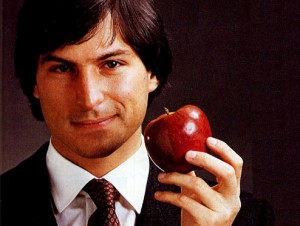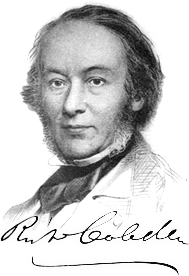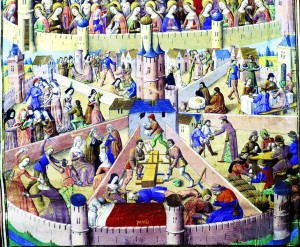Not long ago, Apple boasted that its products were made in America. Today, few are. Almost all of the 70 million iPhones, 30 million iPads and 59 million other products Apple sold last year were manufactured overseas.
via Apple, America and a Squeezed Middle Class – NYTimes.com.
 This story is interesting. It relates facts that we ought to consider. It also reinforces amazing economic superstitions.
This story is interesting. It relates facts that we ought to consider. It also reinforces amazing economic superstitions.
Here is the story’s main anecdote:
In 2007, a little over a month before the iPhone was scheduled to appear in stores, Mr. Jobs beckoned a handful of lieutenants into an office. For weeks, he had been carrying a prototype of the device in his pocket.
Mr. Jobs angrily held up his iPhone, angling it so everyone could see the dozens of tiny scratches marring its plastic screen, according to someone who attended the meeting. He then pulled his keys from his jeans.
People will carry this phone in their pocket, he said. People also carry their keys in their pocket. “I won’t sell a product that gets scratched,” he said tensely. The only solution was using unscratchable glass instead. “I want a glass screen, and I want it perfect in six weeks.”
After one executive left that meeting, he booked a flight to Shenzhen, China. If Mr. Jobs wanted perfect, there was nowhere else to go…
…the focus on Asia “came down to two things,” said one former high-ranking Apple executive. Factories in Asia “can scale up and down faster” and “Asian supply chains have surpassed what’s in the U.S.” The result is that “we can’t compete at this point,” the executive said.
The impact of such advantages became obvious as soon as Mr. Jobs demanded glass screens in 2007.
For years, cellphone makers had avoided using glass because it required precision in cutting and grinding that was extremely difficult to achieve. Apple had already selected an American company, Corning Inc., to manufacture large panes of strengthened glass. But figuring out how to cut those panes into millions of iPhone screens required finding an empty cutting plant, hundreds of pieces of glass to use in experiments and an army of midlevel engineers. It would cost a fortune simply to prepare.
Then a bid for the work arrived from a Chinese factory.
When an Apple team visited, the Chinese plant’s owners were already constructing a new wing. “This is in case you give us the contract,” the manager said, according to a former Apple executive. The Chinese government had agreed to underwrite costs for numerous industries, and those subsidies had trickled down to the glass-cutting factory. It had a warehouse filled with glass samples available to Apple, free of charge. The owners made engineers available at almost no cost. They had built on-site dormitories so employees would be available 24 hours a day.
Now here is the first question: Would consumers have bought in iPhone that scratched up?
I ask this because the article, without argument or rationale, chooses to blame one and only one partner in the worldwide economy (not “American” economy). The blame is placed on abstract “companies” seeking “profits.”
But how is the American consumer who is too demanding to buy an iPhone that will scratch up not also “guilty” of seeking “profit”–of demanding that a good be provided for him of a certain quality. Who are the real people driving the decision here?
Yes, Steve Jobs made a choice. But it was a choice that was entirely about his sense of whether or not he could sell iPhones. Maybe Jobs was wrong, but I don’t think so. The moment our toys start to appear cheap, the game is up.
The Global Slave
Steve Jobs was, at one time, a notoriously incompetent slave. He made products his masters did not want. At least, not enough of them wanted them in sufficient numbers to make him worth keeping around. And thus we read without a trace of irony:
In its early days, Apple usually didn’t look beyond its own backyard for manufacturing solutions. A few years after Apple began building the Macintosh in 1983, for instance, Mr. Jobs bragged that it was “a machine that is made in America.” In 1990, while Mr. Jobs was running NeXT, which was eventually bought by Apple, the executive told a reporter that “I’m as proud of the factory as I am of the computer.” As late as 2002, top Apple executives occasionally drove two hours northeast of their headquarters to visit the company’s iMac plant in Elk Grove, Calif.
But as of late 2002, Jobs did not crash and burn the way he did at Apple in the eighties. He adapted himself, with the help of others, to serve consumers–the consumers whom he had to please to remain in his line of work.
It is true that Apple put out products at a price point that served a certain kind of consumer, but others had their desires served by other slaves, (Dell, Microsoft, etc). And that is exactly why Jobs was probably right about the glass screen.
What would have happened if Apple had spent billions creating specific factories in the United States? They would go bankrupt. That is all. They would not be able to sell a product within the reach of the middle class (yes, even with the credit cards helping out), and even at a luxury price there would probably not be enough customers to make the economy of scale work out.
The consumers were and are the masters. We buy things if we want them. A few have value systems and worldviews to which an appeal can be made for “altruistic” reasons. But outside of overpriced coffee, advertising that you must pay higher than market prices hasn’t caught on. And it wouldn’t work. Every time you pay more than you should for a product, you forgo the opportunity to buy another product. All those unsold products represent unemployment and poverty somewhere in the world. They are conveniently invisible but real lost opportunities to meet the needs of the masters–the consumers.
When Steve Jobs was driven out of Apple the first time, there were no editorials claiming that Jobs was a saint because he kept Apple’s profits low. He was regarded as a failure–a visionary with some strong points, but an overall failure as a CEO. That is true to this day, outside of electric cars and corruptocratic solar panel projects. When someone fails to keep his company profitable (with allowance for startup time), he is understood to have failed in his basic job to the company. It is only the successful who get this sort of moral criticism, even though they would receive no moral support for failing.
And in the meantime, company profits are what many in the middle class are hoping to use to retire. Again, Steve had to be a good slave for consumers and for shareholders.
The Imbalance
What would America have had to be like in order to have a factory readily available for the needs of the iPhone buyers? Do we have glass and factories and laborers and engineers all ready to go at a moments notice? No. We don’t. Why does China? Perhaps this is a story of redeeming some malinvestment (does the Chinese government build factories in an unfinished state, hoping some foreign entrepreneur will have needs that mesh? I hope not). But probably the factory was used for a project that ended. The only reason they were available with the right resources at the right time is that China is a relatively poor country with a much smaller middle class.
Do you want that to be true of the United States?
If so, then the squeezed middle class is not the concern, it is the problem. The article portrays the Chinese workers as exploited, but it doesn’t tell us why they are signing up for those exploitative jobs.
Modernization has always caused some kinds of jobs to change or disappear. As the American economy transitioned from agriculture to manufacturing and then to other industries, farmers became steelworkers, and then salesmen and middle managers. These shifts have carried many economic benefits, and in general, with each progression, even unskilled workers received better wages and greater chances at upward mobility.
But in the last two decades, something more fundamental has changed, economists say. Midwage jobs started disappearing. Particularly among Americans without college degrees, today’s new jobs are disproportionately in service occupations — at restaurants or call centers, or as hospital attendants or temporary workers — that offer fewer opportunities for reaching the middle class.
Even Mr. Saragoza, with his college degree, was vulnerable to these trends. First, some of Elk Grove’s routine tasks were sent overseas. Mr. Saragoza didn’t mind. Then the robotics that made Apple a futuristic playground allowed executives to replace workers with machines. Some diagnostic engineering went to Singapore. Middle managers who oversaw the plant’s inventory were laid off because, suddenly, a few people with Internet connections were all that were needed.
But there are major players missing from this story of “modernization.” With the economic gains of the twentieth-century came a combination of systems produced by the erection of a superstate in North America. Modernization is a dynamic process that keeps changing, but that is not what politics allows for. Labor unions, a state-education system, and a central bank masking economic realities by debt and bubbles stopped the innovation. From now on the only thing that matters is somehow preserving the status quo. So we have a President who thinks it is within his paygrade to question a civilian about his choices in commerce, and no one thinks this is inappropriate. This is insane. And it is impossible. By definition, life involves change. There is no steady state. The economy always shifts. Trying to keep one element stationary is a recipe for disaster and poverty, even when you call it “the American Dream.”
I feel sorry for Mr. Saragoza, but he should have been told that he, like every other consumer, is also an entrepreneur. Getting an “education” was never an automatic path to anything. It was a risky investment. We have only one youth, and we make the best choice that we can in how we invest it, in what sort of training we will receive.
But none of us are told this. None of us are told we need to save massive amounts of money for ourselves whenever we do have a good job. We are encouraged to spend and to spend money we don’t have. We have an entire political system dedicated to making people like Mr. Saragoza engage in risky behavior without ever realizing that he is taking risks.
Of course, Steve Jobs, for all his fame, never had the power to fix any of this. He had to make calculations within the economic system that was presented to him. He had to appeal to the abilities of consumers even if most of those consumers were on a long-term track to an unsustainable credit debacle, buying iPhones with plastic and measuring their wealth on the basis of a fictional housing value.
The article is right that there is a disaster ahead, and that the economy is failing. But it is completely clueless about where the problems have come from and where the solutions lie.
In a sound economy, people trade goods and services. Because not all people can find the best goods at the best time, to trade for what they want, people find intermediate goods–money. But our money is paper based on debt. It contaminates and destabilizes trade, making it impossible to really be sure how to best serve consumers.
That’s a post for another time. The point I want to make here is that Apple is serving the Middle Class. It is not the one responsible for squeezing them.
Steve Jobs was an effective servant.







